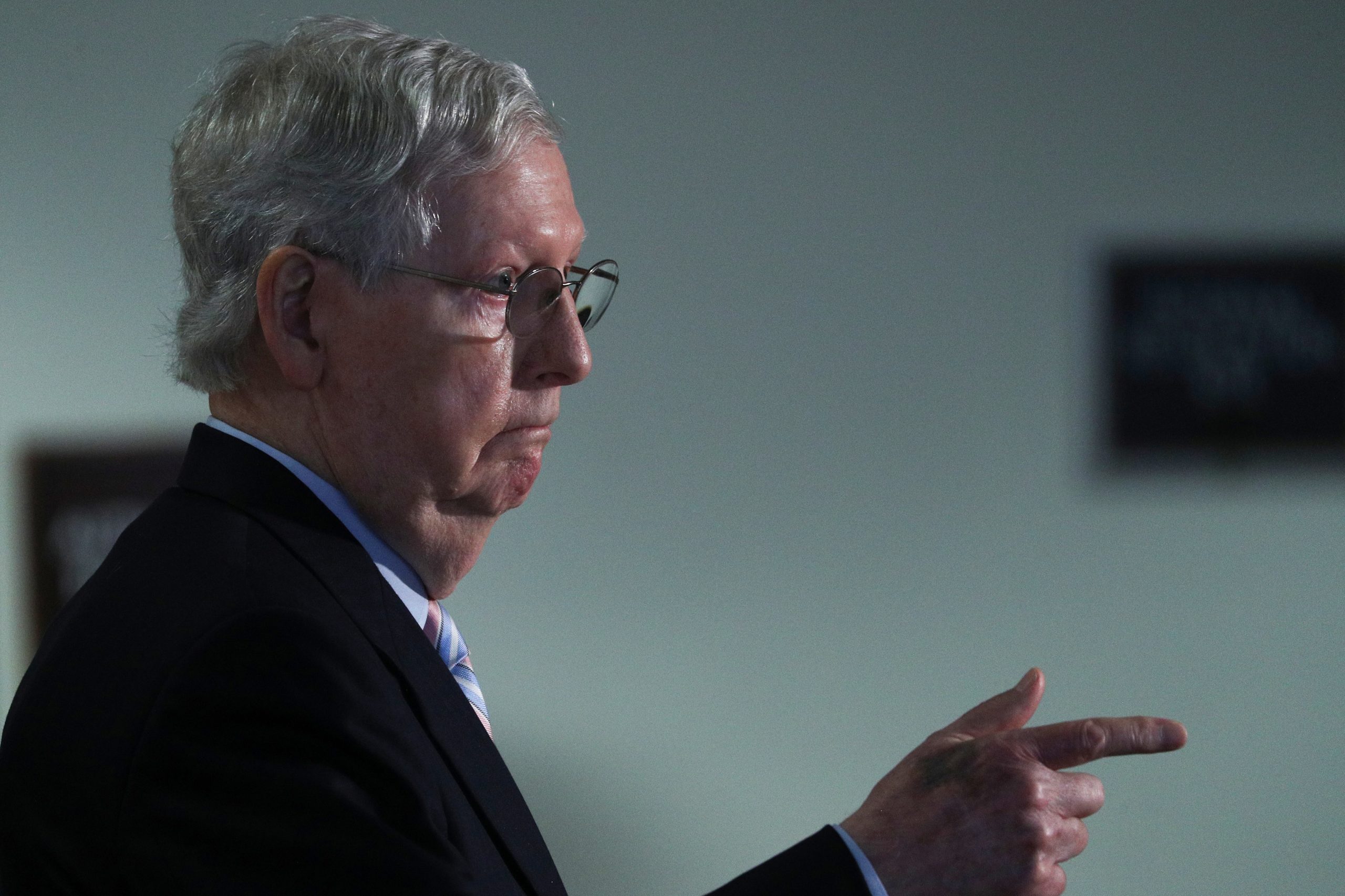Republicans in the U.S. Senate pushed back on Tuesday against their own party’s $1 trillion coronavirus relief proposal the day after it was unveiled by Majority Leader Mitch McConnell, sending some U.S. stocks downward.
McConnell and the chamber’s top Republicans unveiled the coronavirus aid package hammered out with the White House just four days before the expiration of expanded unemployment benefits keeping millions of Americans afloat during the crisis. The proposal would slash the federal benefit from $600 per week in addition to state unemployment, to $200.
Democrats have also rejected the package, calling it too small compared with their $3 trillion plan that passed the House of Representatives in May. Dissident Republicans criticized its expense.
McConnell touted the proposal as a “tailored and targeted” plan to reopen schools and businesses, while protecting companies from lawsuits.
Some U.S. stocks dropped as investors worried about the resurgence in coronavirus cases and awaited progress on the relief plan.
Republican Senator Lindsey Graham estimated that half the party’s members in the Senate would oppose the plan.
“I think if Mitch can get half the conference that’d be quite an accomplishment,” Graham told reporters. Graham said he considers this a war against the coronavirus. “You have to spend money when you’re in a war.”
Multiple Republican senators call the plan too costly.
“I’m not for borrowing another trillion dollars,” Republican Senator Rand Paul told reporters.
The Republican proposal would give many Americans direct payments of $1,200 each, provide billions in loans to small businesses, support hospitals and help schools reopen.
The federal supplemental unemployment benefit has been a financial lifeline for laid-off workers and a key support for consumer spending. Democrats quickly denounced the proposed cut as draconian when millions of Americans cannot return to shuttered workplaces.
PARTISAN DISPUTES
Many Republicans insist the unemployment payout encourages Americans to stay home rather than go back to work by paying them more than their previous wages. Their proposal would provide the $200 weekly payment in place until states create a system to provide a 70% wage replacement for laid-off workers.
Democrats said the $200 plan would damage the economy.
“People want to work, Republican friends. They just don’t have jobs to do it. We’re not going to let them starve while that happens,” Senate Democratic leader Chuck Schumer said.
Democrats also want money for state and local governments, which face multibillion-dollar budget shortfalls, with businesses closed and residents out of work.
“Our residents, our businesses, our families, they need direct federal support now,” said Savannah, Georgia, Mayor Van Johnson, one of a group of Democratic and Republican mayors on a conference call with reporters.
Bipartisan lawmakers questioned why funds for some programs that seemed to have nothing to do with the pandemic – such as $1.8 billion for a new Federal Bureau of Investigation headquarters – were in the proposal.
Schumer and Democratic House Speaker Nancy Pelosi were due to meet later on Tuesday with Treasury Secretary Steven Mnuchin, who had lunch with Republican senators.
The partisan wrangling comes as U.S. coronavirus cases have passed 4.3 million, with nearly 150,000 people killed in the country, and tens of millions out of work.
The Democratic-led House in May passed its $3 trillion coronavirus relief bill known as the “HEROES Act,” but the Republican-led Senate would not consider it.
McConnell acknowledged that the Republican “HEALS Act” was just a starting point for negotiations, and would need bipartisan support to become law.
“The HEALS Act is full of provisions that I would frankly dare my Democratic colleagues to actually say they oppose,” McConnell said.
(Reporting by David Morgan, Patricia Zengerle and Susan Cornwell in Washington; Additional reporting by Lisa Lambert in Washington; Writing by Patricia Zengerle; Editing by Scott Malone and Matthew Lewis)
























